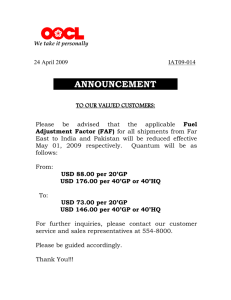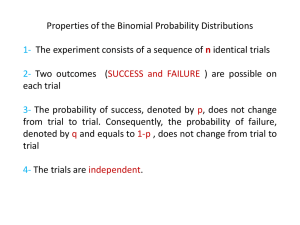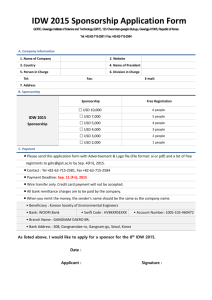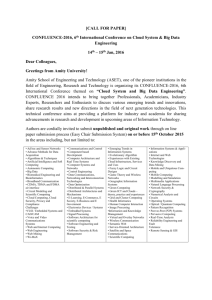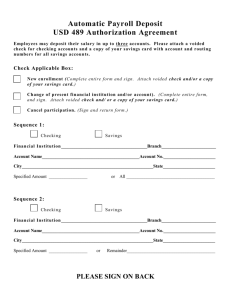Road Safety Risk Assessment
advertisement
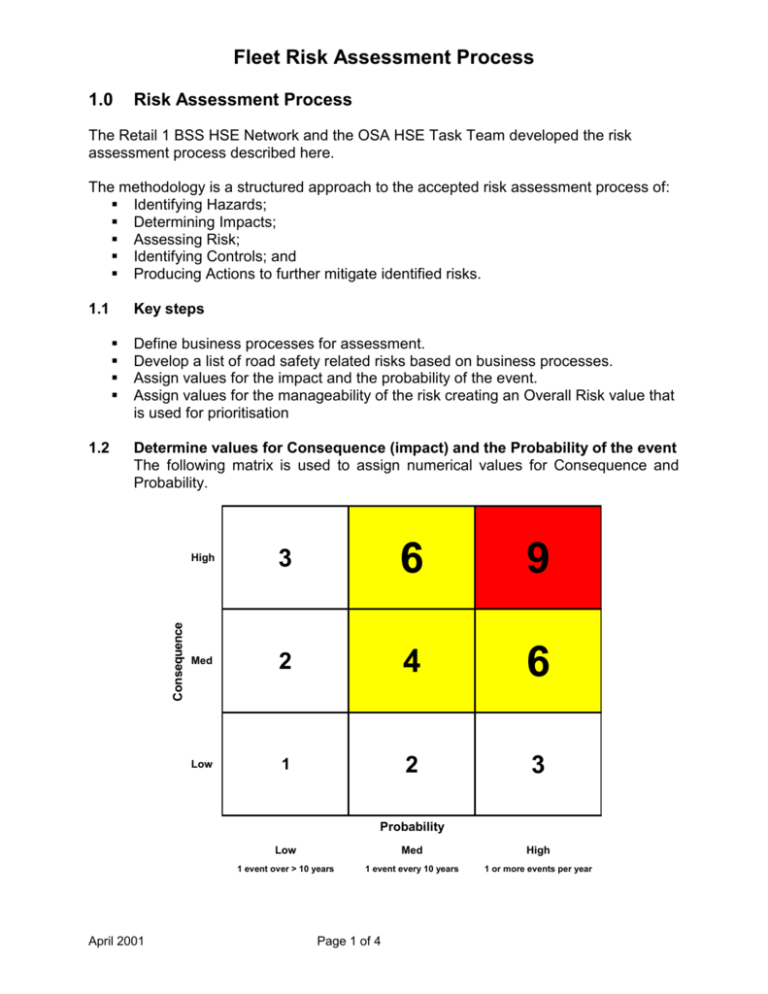
Fleet Risk Assessment Process 1.0 Risk Assessment Process The Retail 1 BSS HSE Network and the OSA HSE Task Team developed the risk assessment process described here. The methodology is a structured approach to the accepted risk assessment process of: Identifying Hazards; Determining Impacts; Assessing Risk; Identifying Controls; and Producing Actions to further mitigate identified risks. 1.1 Key steps Determine values for Consequence (impact) and the Probability of the event The following matrix is used to assign numerical values for Consequence and Probability. Consequence 1.2 Define business processes for assessment. Develop a list of road safety related risks based on business processes. Assign values for the impact and the probability of the event. Assign values for the manageability of the risk creating an Overall Risk value that is used for prioritisation High 3 6 9 Med 2 4 6 Low 1 2 3 Probability April 2001 Low Med High 1 event over > 10 years 1 event every 10 years 1 or more events per year Page 1 of 4 Fleet Risk Assessment Process 1.3 Definitions The following definitions are commonly in use through BP. If not appropriate, a BU could develop its own definitions. Consequence of Business Impact Category Potential Severity High*1 People Property Process Environment Fatalities >USD 500,000 Major fire, exposure, Risk to reputation >15,900 L. [100 Bbls]*2 Multiple Serious Injuries Theft/Fraud >USD 100,000 Business Interruption: >USD 500,000 Potential Commercial Loss: >USD 200,000 Medium Low DAFWC / Restricted Work Injuries >USD 10,000 to USD 500,000 Business Interruption: >USD 10,000 to USD 500,000 Medical Treatment Theft/Fraud >USD 10,000 to USD 100,000 Potential Commercial Loss: >USD 10,000 to USD 500,000 First Aid < USD 10,000 <USD 10,000 159 L to 15,900L. [1–100 Bbls] *2 <159 L [1 Bbls] *2 *1 Based on BP definitions of a MIA *2 Subject to locality/circumstances/potential Probability of an event High One or more events per year are likely. Medium One event per every 10 years. Low One event in more than every 10 years. The assessment is looking for events, which are likely to happen in the comparable industry and environment. [Note: Event frequencies can be modified to fit BU requirements.] April 2001 Page 2 of 4 Fleet Risk Assessment Process Manageability of the risk High If the company has direct operational control of the process Medium If the company has indirect control of a process, or can only influence Low If social, political, cultural or technical issues are the reason for risks The manageability should provide an overall view, if certain risks are fully under the control of management. This could be of course a judgement only but it raises healthy discussions on how far management is able or feels itself empowered to control or influence HSE matters. The result should be used to tackle the high manageable items first for quick implementation results only. It does not mean that low manageable issues should not have actions identified. 2.0 Risk Assessment Template The Risk Assessment spreadsheets (attached Excel Workbook at the end of this document) are used to document the identification of BU Activities, Hazards, and the values assigned for Consequence, Probability, Manageability and Risk. It is suggested that a separate Sheet be used for each specific area of Activity. Individual work site locations can be used as well. For clarity, a completed example is included in the Excel Workbook. Number To be completed once the ‘Process, Sub-process and Hazard’ columns are filled in. In the first column, record number of main activities within a Process. In the second column, record the number of activities within sub-processes. In the third column, record the number of actual risks/Hazards connected to Process/sub-process Process Each individual Process is to be listed in the first instance Sub-process Each individual Process is then to be split in meaningful, not too detailed, subprocesses, if any. April 2001 Page 3 of 4 Fleet Risk Assessment Process Hazard Processes and sub-processes are then to be ‘brain stormed’. Consequence Determined using the Risk Matrix described in section 1.2. Probability Determined using the Risk Matrix. Risk Multiply the value for consequence times the value Probability to get Risk. Manageability Critically review BP’s level of Control to determine levels of Manageability. Classify Manageability as: 3.0 High: If the company has direct operational control of the process. Rating = 1 Medium: If the company has indirect operational control of the process, or can only influence. Rating = 2 Low: If social, political, cultural or technical issues are the main reason for the risks. Rating = 3 Action Plans Once all risks have been identified, rated and prioritised, action plans can be agreed. 4.0 Risk Assessment Tool April 2001 Page 4 of 4
